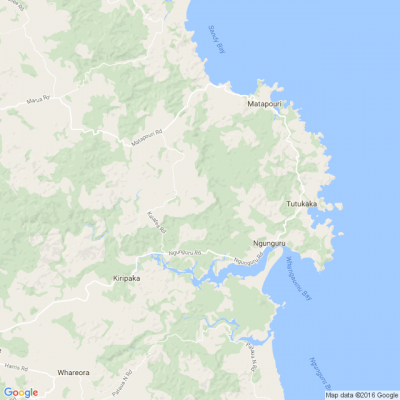
Know what’s happening
Access the private noticeboard for verified neighbours near you. Keep informed about any suspicious activity, send urgent updates to your neighbours when required and discuss emergency planning.
Get to know your neighbours
Browse the directory and start getting to know your neighbours. Don’t want to post to the whole neighbourhood? Send a private message.
Buy, sell and give away
Want to declutter your garage? Buy some used household items? Give away some garden stuff? Become a verified neighbour to browse and post items for sale. Trading is simple when everyone lives nearby.


Thank you for using Neighbourly
You may receive an email confirmation for any offer you selected. The associated companies will contact you directly to activate your requests.
Sheila Blackburn from Whangarei Heads Arts Trail
The signs are up and the trail guides are on sale. Only 18 days to go and Artists are working like crazy to get new work ready for their exhibitions. If you haven't already put the date in your diary please do. Saturday March 31st and Sunday April 1st for one of the best Art Event in … View moreThe signs are up and the trail guides are on sale. Only 18 days to go and Artists are working like crazy to get new work ready for their exhibitions. If you haven't already put the date in your diary please do. Saturday March 31st and Sunday April 1st for one of the best Art Event in Northland. 44 Artists in 22 locations and all on one 35k stretch of scenic Whangarei Heads
Kerry from Glenbervie
“The test of character posed by the gentleness of God's approach to us is especially dangerous for those formed by the ideas that dominate our modern world. We live in a culture that has, for centuries now, cultivated the idea that the skeptical person is always smarter than one who … View more“The test of character posed by the gentleness of God's approach to us is especially dangerous for those formed by the ideas that dominate our modern world. We live in a culture that has, for centuries now, cultivated the idea that the skeptical person is always smarter than one who believes. You can be almost as stupid as a cabbage, as long as you doubt. The fashion of the age has identified mental sharpness with a pose, not with genuine intellectual method and character. Only a very hardy individualist or social rebel -- or one desperate for another life -- therefore stands any chance of discovering the substantiality of the spiritual life today. Today it is the skeptics who are the social conformists, though because of powerful intellectual propaganda they continue to enjoy thinking of themselves as wildly individualistic and unbearably bright.”
― Dallas Willard
The world is full of opinions, so I would like to take some time to speak about that apparently innocuous little word. What we tend to believe is that our opinion has at least a semblance of truth, and others opinions are - well either baseless at worst, or further from truth at best.
But what is worse, is the idea that there can only be- opinions. This is reflective of an all pervading attitude of doubt. An atmosphere of doubt at a grassroots level clouds the world of thought. No matter how well thought out a position may be, one can simply pour an attitude of skepticism and doubt on the whole process and come away thinking that therefore the subject has been dealt with. But while it is easy to doubt, it is far harder to affirm. This is what Kant had to say about it:
“Skepticism is thus a resting-place for human reason, where it can reflect upon its dogmatic wanderings and make survey of the region in which it finds itself, so that for the future it may be able to choose its path with more certainty. But it is no dwelling-place for permanent settlement. Such can be obtained only through perfect certainty in our knowledge, alike of the objects themselves and of the limits within which all our knowledge of objects is enclosed.”
Kant knew human nature well enough to know that we are not happy in doubt, that it is dangerous to tarry, to sleep in such unfriendly country. When we doubt the status quo, we must also allow the imagination to seek a better country. Einstein said: “Imagination is more important than knowledge. For knowledge is limited to all we now know and understand, while imagination embraces the entire world, and all there ever will be to know and understand.”
― Albert Einstein
Let’s hear what the late J. F. Kennedy thought about opinions:
“The great enemy of the truth is very often not the lie- deliberate, contrived and dishonest- but the myth- persistent, persuasive and unrealistic. Too often we hold to the cliches of our forebears. We subject all facts to a prefabricated set of interpretations. We enjoy the comfort of opinions without the discomfort of thought”
What seems to be a growing consensus is that comprehending truth is as as far from the realms of possibility as a square circle is from reality. The common denominator is that truth in anything is impossible except in a few limited fields . In any subject we care to think of- it seems to be a foregone conclusion that we can only ever attain to a private perception of reality, there is no such thing as absolute truth, and even if such an entity existed, it would be inaccessible to us. Between us and reality, there is always our perception getting in the road. But is that an assumption that needs to be queried, a temptation to slothful thinking that needs to be doubted?
The late philosopher Professor Dallas Willard on the need for targeted skepticism: ““We need to be skeptical about secularism, see one of the hardest things to do, is to be skeptical about the things that are in most need of skepticism- you have to look at the consequences of rejecting religious truth from the domain of truth”
At this point the reader will need to scroll down to the image.
Marcus Aurelius was a Roman Emperor from 161 to 180 AD and has also been distinguished as one of the most important Stoic philosophers. It is he that is credited with the caption used in this image from The Idealist on Facebook. But it’s not just the saying that captured my imagination- it’s the very clever use of the image involved as well. Together they epitomize all that is clever and good about a slogan- punchy, humorous and quickly grasped. It exemplifies the cliche: “a picture is worth a thousand words”. What staggers me somewhat is that Aurelius seems to have captured the spirit of our age, no mean feat when considering his antiquity. But of course, what goes around, comes around. But while I admire its succinctness, we ought not be taken in by it. To be taken in by it is to accept a “dumbing down”.
This really does characterize in a nutshell, one of the chief dilemmas of our time, the emasculation of truth. Everything is reduced to "opinion" and when that happens, truth is devalued and lumped in with half-truths and convincing fallacies, and straight out lies dressed in exotic clothes. The term Postmodernism characterizes the spirit of our times. Men and women of foresight predicted the direction the world would take, from it's crucible in the tertiary institutions. Over a hundred years ago G. K. Chesterton declared: "The postmodern has his feet firmly planted in mid-air".
Good old Marcus has made an absolute, unequivocal statement. Not once but twice, (given that the translation is accurate) he uses the word “everything” ditto.. There is not much that can be an exception to that is there? So everything is an opinion is it? Is that a fact? But therefore what he says can’t be a fact can it? If all is opinion, then that must include Marcus’s own statement mustn’t it? If we subject his saying to his own rule- (that everything is opinion and not fact) then his own saying defeats itself. His own saying (as defined by his own saying)- isn’t a fact. So who then is interested in opinions not based on facts? This is after all, merely his perspective, and not the truth- he has laid a trap for all truth, and has fallen neatly into his own net, hoist by his own petard.
The reality is that if true knowledge was impossible, which is what his saying concludes, we wouldn't even be capable of knowing what an opinion was! We all know what an opinion is, compared to true knowledge or factuality, truth- but we only know these from comparison. If we were incapable of truth, then neither would we know what "opinion" would be. The word “opinion” would have no meaning for us. As C.S. Lewis has said, a man can only call a line crooked, when he has some idea of a straight line. Well, the same holds for opinion, we can only call something an opinion, (like the crooked line) when we know what truth is, (the straight line), and if everything was literally opinion, as Aurelius opines, then we could not distinguish an opinion from truth. We could not know any truth.
It is interesting to note that the difficulty for the two tally clerks who cannot agree on the number of boards does not stem from any lack of knowing the truth about counting boards, but rather the impossibility of what are depicted as boards, in other words the irrational drawing. And for the same reason it is irrational to concede that truth cannot be known. Because if that were true, then we could not know it was true. Again we find that those views which prove an enemy of the absolute, smuggle in their own absolutes in order to make their erroneous point.
In this forum we have all heard that our culture has undergone some radical changes in a few short years, and that there has also been observed a marked deterioration in social statistics that is of genuine concern to many.
“Culture is the effort to provide a coherent set of answers to the existential questions that confront all human beings in the passages of their lives” Daniel Bell
“ a genuine cultural revolution then, is one that makes a decisive break with the shared meanings of the past- particularly those that relate to the deepest questions of the purpose and the nature of human life.” Daniel Yankelovich
Now we can see from the fact that we know what opinions are, because we know what truth is, and objective morality is like that, we can know when something is merely human convention, or just a preference, because we are holding them up to the light of an objective standard.

Applications are now open to Auckland Grammar School’s boarding hostel, Tibbs House, for 2019. Founded in 1962, Tibbs House provides accommodation, study and recreational facilities for 120 boarders. Boarders are supported by eight full time Masters who offer a wide range of teaching subjects and… View moreApplications are now open to Auckland Grammar School’s boarding hostel, Tibbs House, for 2019. Founded in 1962, Tibbs House provides accommodation, study and recreational facilities for 120 boarders. Boarders are supported by eight full time Masters who offer a wide range of teaching subjects and activities, as well as nightly study guidance.
To apply, visit our website to download an application form. Alternatively, contact the Director of Boarding, Mr Daniel Oram, at d.oram@ags.school.nz.
Apply now!

Kerry from Glenbervie
I’m starting a new thread here because an issue arose that has not been explored in relation to David Arlidge’s recent discussion: Is marriage dead as a social institution? Or is there an elephant in the room?
The reality that, as David pointed out, this institution has held such a great … View moreI’m starting a new thread here because an issue arose that has not been explored in relation to David Arlidge’s recent discussion: Is marriage dead as a social institution? Or is there an elephant in the room?
The reality that, as David pointed out, this institution has held such a great influence on human culture over such a vast period of history and over such diverse cultures cannot reasonably be denied. What also cannot reasonably be denied is the reality that at least in our culture, and perhaps that of wider Western civilization this institution is rapidly losing favour as a social more.
David’s view, (as is mine, though for different reasons) is that this was not a good thing.
And I think it might be fair to say that, just as the first black President of the United States was ushered in as a defining moment of racial equality in American politics, so too in New Zealand we have reached a pivotal moment in our own political history.
While we may be basking in the sunshine of sexual equality having our third female Prime Minister, we no doubt have moved firmly still further into liberal ideology having our first Prime Minister who is both unmarried and expecting her first child. I think that David’s thread amply demonstrated that people observed this as a good thing. That this was a sign of a moral “coming of age” when a political leader could accomplish the pinnacle of political aspirations, and remain unmarried, and all without censure or misgivings by any group with political clout. Those who responded to the thread seem to reflect the views of the wider population at least according to media portrayal.
What hasn’t changed is that we still universally describe these changes in terms of being “good” or “better” or “worse” or “bad”. In other words we still recognize these changes as questions of moral significance.
The question of how we arrive at whether something is good or bad is the question I would like to explore in this thread. I hope this strikes you as an important question. If the question of marriage assumes such importance, then surely a question of our basis for all moral questions must assume value an order of magnitude greater again? If it is important to give a hungry man a fish, who tomorrow will be hungry again, is it not so much more important to teach him how to fish! I think sometimes our reaction to this is: “Well to marry or not to marry is immediately available to my experience, the question of our basis for morality is so esoteric, so beyond what I’m used to thinking about, I don’t think I can participate, I’m not qualified nor interested.” Just remember that the law chooses a jury of ordinary people who have a sense of civic duty to decide the fate of alleged murderers who stand to lose their freedom for a very long time. Well I hope this topic will be of interest, and not at all out of reach.
To that end, I want to comment on some things which were missed in the previous discussion, so first some housekeeping:
44 replies (Members only)
Want to tap into the power of social media to grow your business? Then check out these tips on how to harness the latest trends, choosing the right social media channels, outsourcing and more – so you can use social as a powerful tool to engage with your audience, drive sales, and build your … View moreWant to tap into the power of social media to grow your business? Then check out these tips on how to harness the latest trends, choosing the right social media channels, outsourcing and more – so you can use social as a powerful tool to engage with your audience, drive sales, and build your brand. Find out more

 Loading…
Loading…
Are you sure? Deleting this message permanently removes it from the Neighbourly website.
 Loading…
Loading…

 Auction
Auction




 Auction
Auction


 Marketed by Matt Oliver
Marketed by Matt Oliver
© Neighbourly 2024
